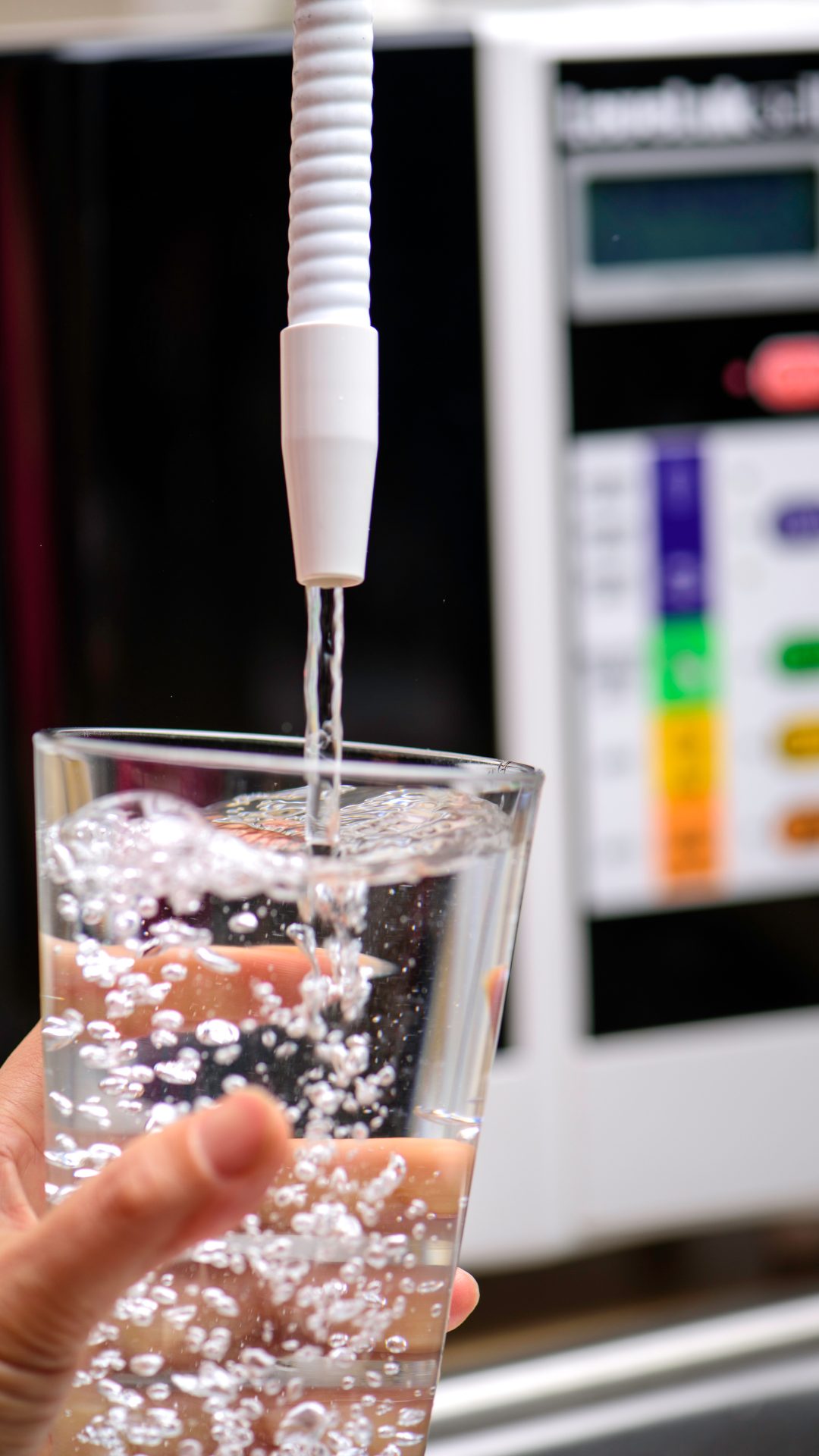 There's a lot of hype surrounding alkaline water. A growing number of health experts and enthusiasts are embracing the alkaline water trend, citing its numerous benefits and healing properties. Grocery stores have fancy water marketed with the alkalinity of the water in the bottles right on the label.
There's a lot of hype surrounding alkaline water. A growing number of health experts and enthusiasts are embracing the alkaline water trend, citing its numerous benefits and healing properties. Grocery stores have fancy water marketed with the alkalinity of the water in the bottles right on the label.So, what exactly is alkaline water, and how is it different from regular tap water? In simple terms, alkaline water is water with a higher pH level than regular tap water. The pH scale measures the acidity or alkalinity of a substance on a scale of 0 to 14, where 7 is neutral, below 7 is acidic, and above 7 is alkaline.
It was discovered by Dro Otto Warburg in the early 1900s that
“No disease, including cancer, can exist in an alkaline environment.”
So naturally, this is an environment we would want to create in our own bodies. Drinking and bathing in alkaline water can also help balance the body’s pH levels, which are often disrupted by our modern-day exposures to acidic food, drink, cleaning agents, and more. The body naturally maintains a slightly alkaline pH of around 7.4, and using alkaline water can help support this natural balance and improve overall alkalinity.
Alkaline water typically has a pH level of 8 or 9, which means it is more alkaline than regular tap water, which has an average pH of 7. This alkaline pH level is believed to have numerous benefits and therapeutic effects on the body, including helping to neutralize acid in the body, boosting the immune system, and improving hydration.
Because alkaline water has a higher pH level than regular tap water, it can help reduce the acidity of certain foods, making them easier to digest. It can also be used for cleaning and bathing as its high pH level can help break down dirt, grime, and other pollutants.
 But how you create the alkaline state can made a difference in whether these benefits are realized.
But how you create the alkaline state can made a difference in whether these benefits are realized.
Many water filtration systems use electrolysis to create the alkaline pH. (The most commonly known system for this is the Kangan water system. Others include Enagic, Jupiter, and Tyent). Water made alkaline through electrolysis involves running an electric current through the water to create two streams - one with acidic water and one with alkaline water.
Electrolysis “ionised water has been known to have short term beneficial effects, but it is believed that long term use of this water is detrimental to good health.” Studies have been conducted showing that synthetically ionized water can be damaging to heart tissue. It can also cause nervous tension, urinary tract infections and over-alkalization of the digestive system.
Is there another option for alkalizing water?
Water made alkaline through mineralization involves adding minerals such as calcium, magnesium, and potassium to the water source. These minerals will raise the water's pH level and make it more alkaline. Mineralization can happen naturally in some water sources, but it can also be achieved through other methods.
 Mineralization is relatively simple and creates a more stable pH level in the water. When water flows in a stream in nature, it is naturally mineralized by the rocks and stones it passes through. Water filtration systems that use minerals to ionize the water are mimicking this natural process.
Mineralization is relatively simple and creates a more stable pH level in the water. When water flows in a stream in nature, it is naturally mineralized by the rocks and stones it passes through. Water filtration systems that use minerals to ionize the water are mimicking this natural process. Alkaline water made through mineralization can be a simple and natural way to support optimal health and well-being. By neutralizing acids in the body, balancing pH levels, and improving hydration, alkaline water may be just what you need to feel your best.




















0 Comments